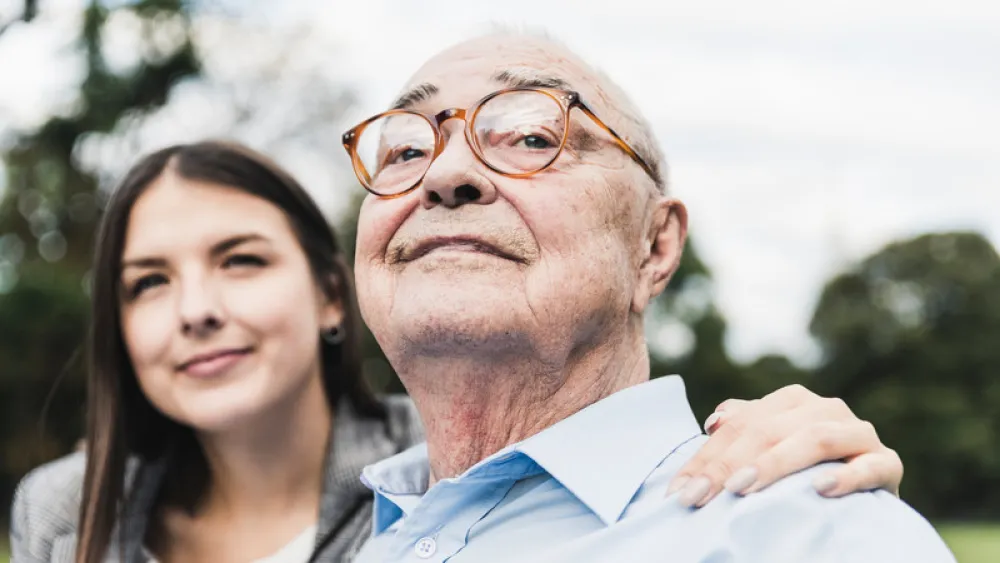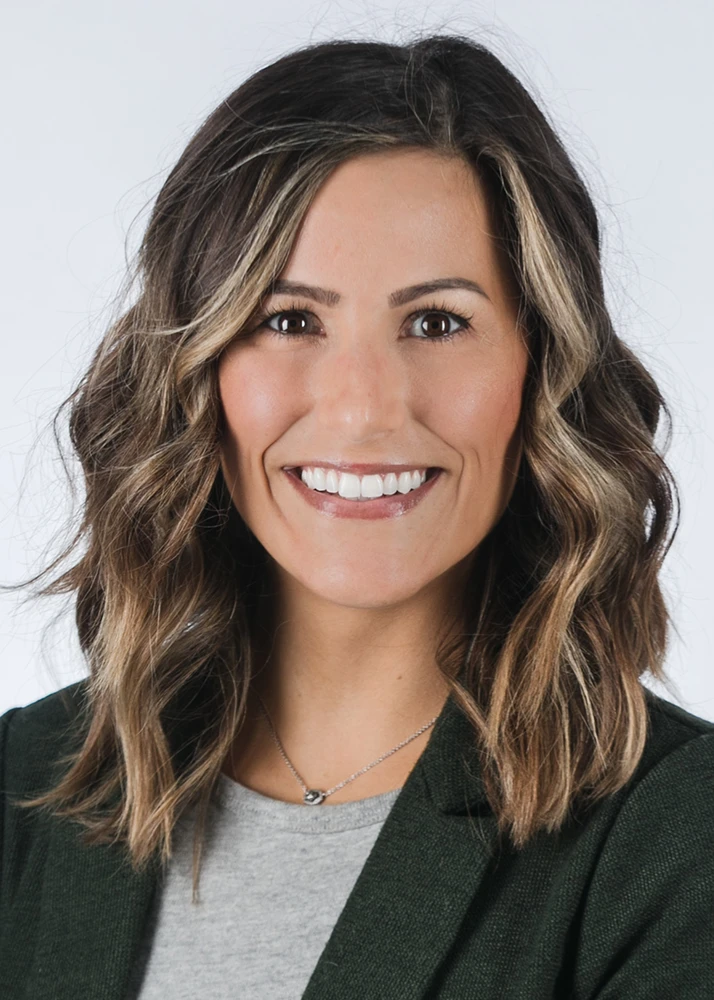Today's Medicine
Addressing the Alzheimer's Stigma: How the Methodist Geriatric Assessment Clinic Is Helping Patients and Caregivers
Published: June 10, 2021

To make matters worse, there’s a stigma tied to Alzheimer’s disease, which can prevent people from seeking treatment for themselves or loved ones. It all comes from lack of awareness and understanding. And Methodist is dedicated to addressing that in more ways than one.
Understanding Alzheimer’s
Alzheimer’s disease is one of the most common types of dementia – a decline in at least one area of brain function, which often includes:
- Memory
- Reasoning
- Language
I want to be clear: One of the biggest misconceptions people have is that memory loss is a normal part of aging. It’s not. While it is normal to take longer to process or remember things as we age, memory loss is never normal. In fact, continuously forgetting recently learned information – such as events and appointments – is one of the earliest, most common signs of Alzheimer’s.
Risk Factors
Age
Age is the biggest risk factor for Alzheimer’s, and each decade of life significantly increases one’s risk. It’s estimated that more than one-third of people older than 85 have Alzheimer’s disease.
Genetics
Early-onset Alzheimer’s disease occurs before the age of 65. It’s much less common than typical Alzheimer’s, making up approximately 5% of all patients with Alzheimer’s. The vast majority of these cases occur randomly, but a small percentage can be inherited (genetic).
Assessing Brain Health and Function
Wondering if you or a loved one need an evaluation? While Medicare Annual Wellness Visits include a brief screen for cognitive impairment, the AD8 is extremely helpful and can be accessed anytime! It’s an 8-item questionnaire that can be filled out by the patient or caregiver and can be done in three minutes or less. Scoring 2 or higher on this test is concerning for cognitive impairment and warrants further evaluation by a trained professional. That’s where the Methodist Geriatric Assessment Clinic can help.
The Methodist Geriatric Assessment Clinic
The Methodist Geriatric Assessment Clinic opened in August 2019, but already, we’ve seen a number of success stories from patients and caregivers.
Our goal? Keeping people happy, safe and independent. We want to keep patients functioning at the highest level of independence possible. And we want to support families who are tasked with caring for these individuals, reminding them they’re not alone.
Patient-Centered Approach
Some patients are scared to visit the clinic because they’re worried about being put into a nursing home. Here’s what they need to know: That is never the goal.
My team and I do everything possible to keep our patients in their preferred living situations. We’re specifically trained and have access to the resources necessary to make that happen – whether that be identifying a need for physical therapy or setting up home health care and companion services. We can help arrange day programs or help find independent and assisted living facilities that best suit patient-specific needs (for example, one that accepts pets). We can also help navigate the often complicated insurance issues that arise with these situations.
What to Expect
An appointment at the Methodist Geriatric Assessment Clinic includes a full assessment of physical, mental and emotional health, as well as an evaluation of support systems in place. It consists of two visits.
Here’s what happens at the first visit:
- The patient is checked in just like at a normal primary care visit and seen by a variety of different clinicians over the course of about four hours.
- I or another board-certified geriatric physician will perform a complete evaluation. This includes a full history and physical exam, focusing heavily on age-related issues that are sometimes overlooked during a routine exam.
- Depending on the situation, the patient may have blood work or a brain scan (MRI or CT scan) done.
- A neuropsychologist tests different areas of the brain, checking for things like memory loss or language problems.
- Our geriatric pharmacist does a full inventory of medications, evaluating potential interactions and side effects.
- A care coordinator and patient advocate meets with family members to see what changes or issues they’re noticing. This is one way of evaluating the patient’s support system and home environment.
After that first visit, our multidisciplinary team sits down to discuss findings and recommendations, arriving at the best, most personalized care plan for the patient and family.
Here’s what happens at the second visit (usually the following week):
- We go over all testing results with the patient and family. If applicable, we review new diagnoses, medication changes and further recommendations for the patient’s health and safety.
- The patient and family are provided an updated medication chart and a written copy of all our findings and recommendations.
- We take our time in answering questions and concerns, ensuring a good understanding of all our recommendations and next steps.
After that second visit, we contact the patient’s primary care provider so that they’re kept in the loop.
Caregiver Support
Being a caregiver may feel like a thankless job. The stress that goes along with it often goes unrecognized. On top of that, caregivers may feel guilty for being stressed or needing time for themselves. But studies show that caregivers who don’t have adequate support have significantly higher rates of mental health issues – such as depression and anxiety – which can lead to physical health issues.
One of the things we try to do at the clinic is help caregivers and families recognize what they can and can’t control, and provide as much education and access to support as possible. It’s imperative that caregivers realize the importance of self-care. Our help in finding respite services or day programs often provide caregivers that opportunity.
Getting Over the Fear, Improving Quality of Life
Alzheimer’s can feel like an incredibly isolating disease for everyone involved, but it doesn’t have to be. By spreading awareness and talking more openly about it, we can all play a role in ending the stigma and stereotypes associated with Alzheimer’s. We can make it easier for patients and loved ones to seek treatment and achieve better health and quality of life.
While a diagnosis may make those affected feel a lot of things, loneliness shouldn’t be one of them. If you or a loved one need to feel heard, safe and understood, call the Methodist Geriatric Assessment Clinic at (402) 354-3152.
More Resources
- Learn more about the Methodist Geriatric Assessment Clinic
- Learn how to make a difference in the fight against Alzheimer’s disease
- Learn more about Methodist's Geriatric Resource Nurse Program
- Get similar articles delivered straight to your inbox


